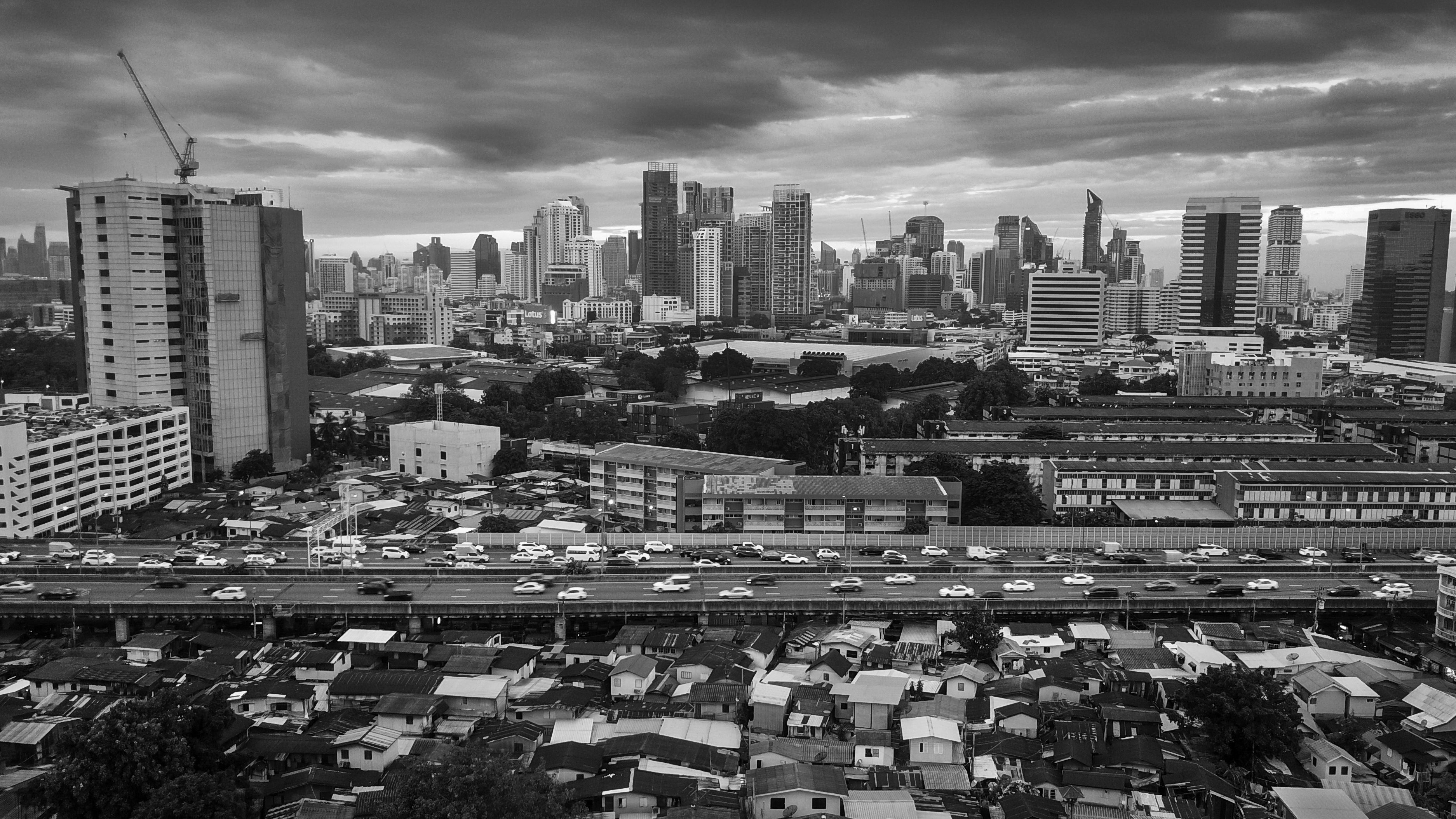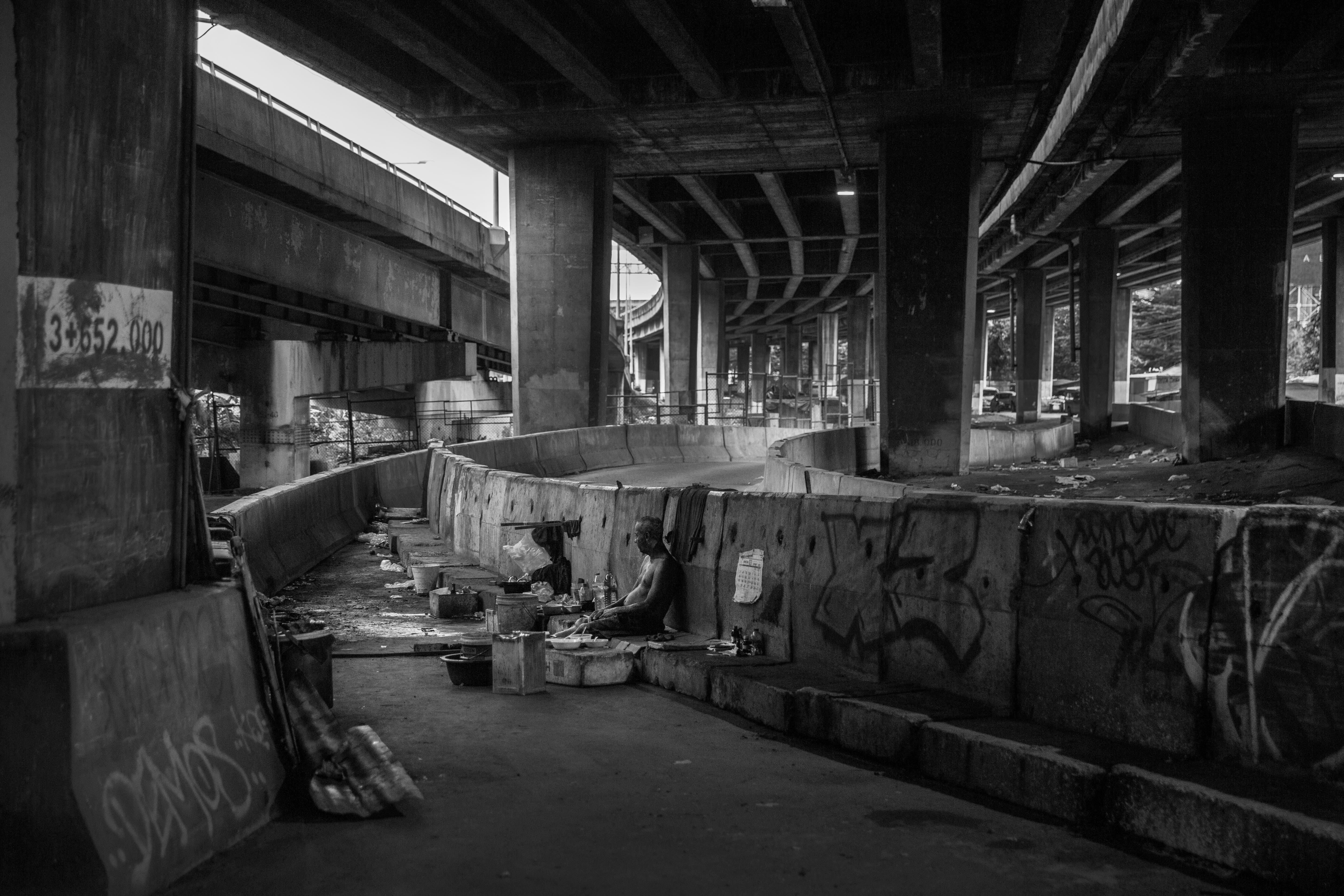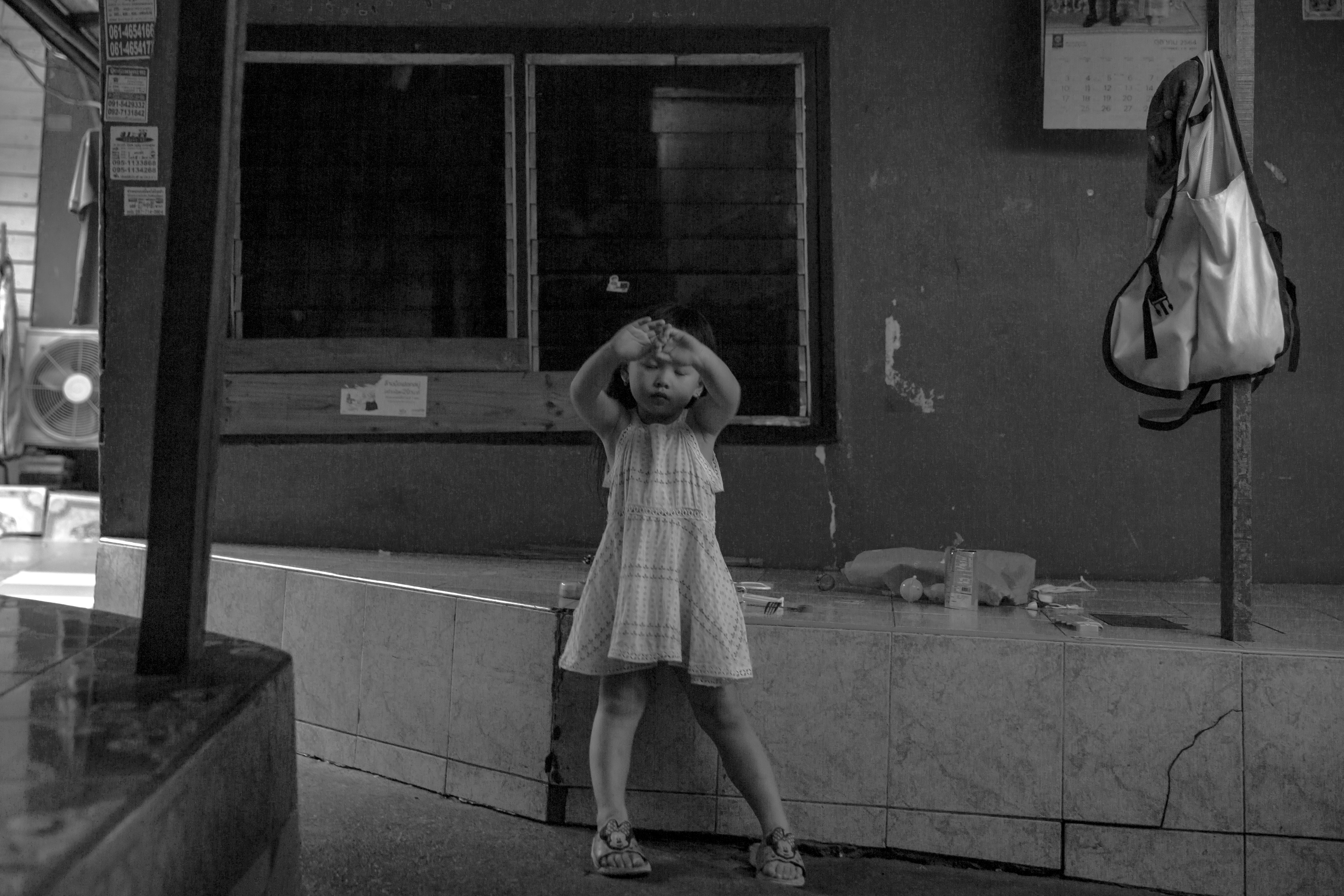曼谷贫民窟这个摄影集是我作为本科毕业作品的一个项目。疫情来临之前我本想把泰国贫富差距这个话题用一部纪录片的方式记录下来,但是后来出于对于摄影团队的安全考虑,这个话题我最终采用了摄影+多媒体的方式呈现。
The photo collection "Slums of Bangkok" is a project for my undergraduate graduation thesis. Before the pandemic arrived, I initially planned to document the wealth gap in Thailand through a documentary, but later, for the safety of the photography team, I decided to present this topic through a combination of photography and multimedia.
我想在这部作品中展示的东西有很多,包括家,贫富差距,人与城市。尤瓦尔·赫拉利在他的《人类简史》极力证明,人类曾在采集时代过着无忧无虑的富裕生活,而正是农业革命把人类逼上了一条需要时刻前进奋斗的道路。驯化动物,种植小麦,这些一刻也停不下来的工作带来了人口爆炸和过剩的粮食。也正是农业革命,让家的概念走进了人类的生活。我们需要仓库去储藏粮食,圈去养羊,还有离地比较近的炕头。
There are many things I want to showcase in this work, including home, wealth disparity, and the relationship between people and cities. Yuval Harari strongly argued in his "Sapiens: A Brief History of Humankind" that humans once lived a carefree and prosperous life in the gathering era. It was the agricultural revolution that forced humans onto a path that required constant advancement and struggle. Domesticating animals, growing wheat, these ceaseless tasks led to population explosion and surplus food. It was also the agricultural revolution that brought the concept of "home" into human life. We needed warehouses to store food, pens to raise sheep, and beds that were closer to the ground.

从个人的经历出发,我从小就四海为家,居无定所。在辗转腾挪之中我对家这个词的概念很模糊,但是我深切的感受到,搬家是非常不容易的。不过,仍然有的人一路打拼,孤注一掷落户到北京郊区;也有的人选择逃离北上广,来到偏远东北的鹤岗定居。他们有的是为了更好的资源,有的人则是逃离着压力。
From my personal experience, I have been a nomad since childhood, without a permanent home. In my continual moving, the concept of "home" is blurry to me. However, I deeply feel that moving is not easy. Still, some people strive hard and stake everything on settling in the suburbs of Beijing; some people choose to escape from Beijing, Shanghai, and Guangzhou, and settle in Hegang, a remote city in the northeast. Some are seeking better resources, and some are escaping from stress.

在资源分配不平衡的城乡之间,城市的居所被赋予的意义似乎比仓库和炕头更多了。一间地理位置优越的房子意味着身份,收入,地位,教育和医疗资源。像曼谷这样GDP能占到全国40%的城市,许多泰国人不惜拖家带口逃离老家非法定居在这里,渴望着机会和金钱。我们就这样在城市化日新月异的进程中被异化着。摄影家 Sam Gregg 称这群人有着霓虹之梦( Neon Dream )。我也被他的这部摄影集启发,开始深入了解泰国贫民窟居民这一群体。
In the imbalance between urban and rural resource allocation, the meaning assigned to urban dwellings seems to be more than that of warehouses and kang beds. A well-located house implies identity, income, status, educational, and medical resources. In cities like Bangkok, which accounts for 40% of the country's GDP, many Thais risk leaving their hometowns to settle here illegally, yearning for opportunities and money. Thus, we are being alienated in the process of urbanization that is changing day by day. Photographer Sam Gregg calls these people the "Neon Dream". I was inspired by his photo collection and began to delve into understanding this group of residents in the slums of Thailand.

